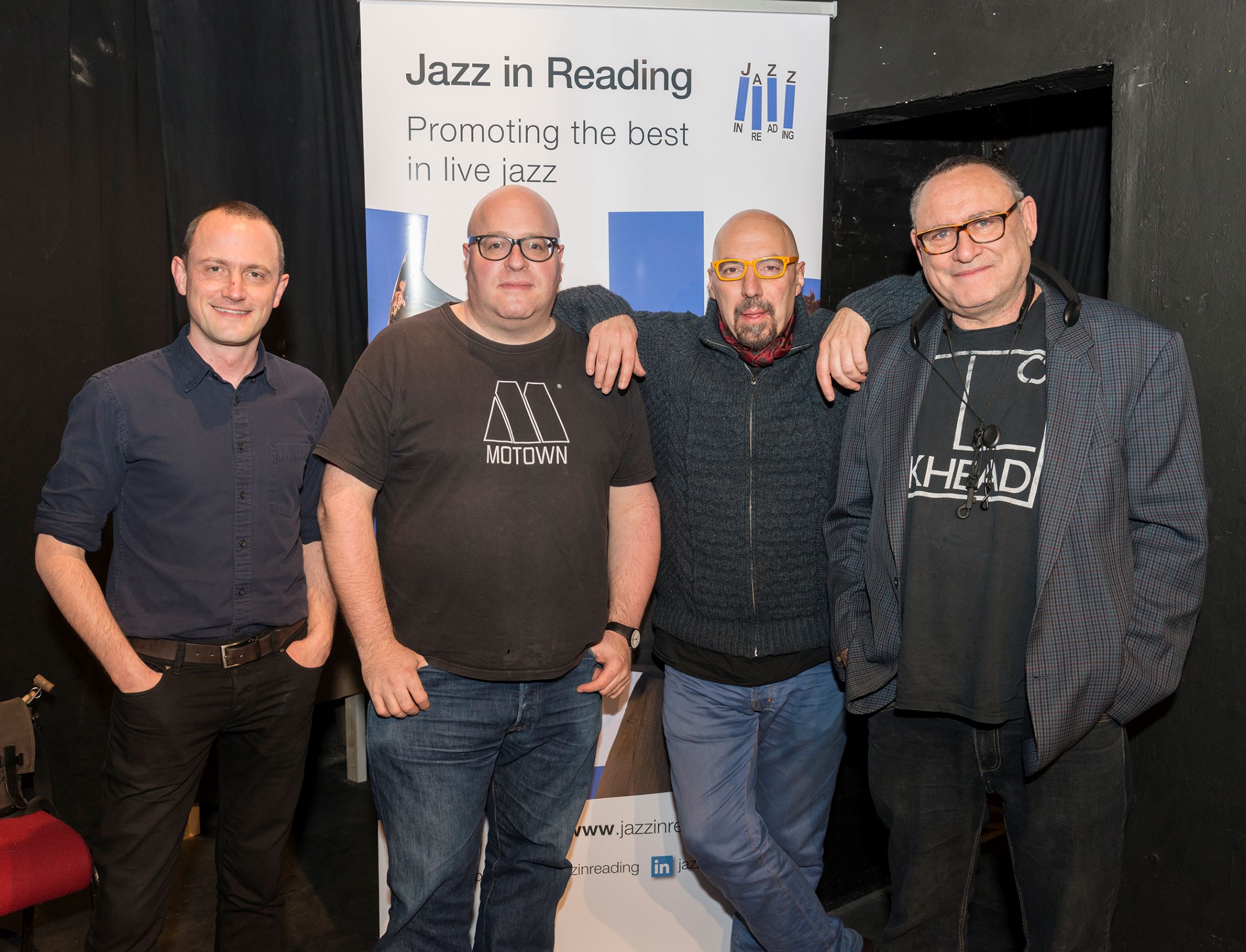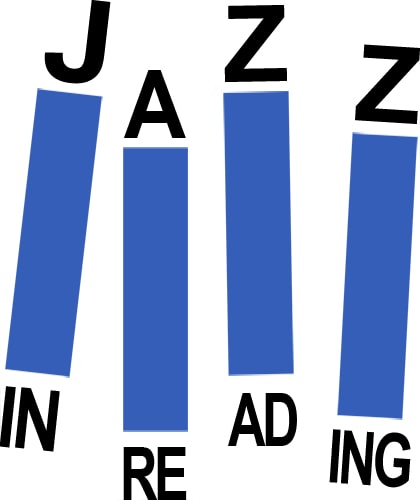Gilad Atzmon & The Orient House Ensemble “Spirit of Trane” | January 2019

Friday 18 January, Progress Theatre, Reading
Gilad Atzmon soprano, alto & tenor saxophones | Ross Stanley piano | Yaron Stavi double bass, | Enzo Zirilli drums
Their ears assailed by what seemed like an obsessive twenty-three-minute solo outing of ‘My Favourite Things’ on a strange high-pitched serpent-like instrument, the soprano saxophone, large chunks of the audience voted with their feet and beat a hasty retreat from the Gaumont State Kilburn on the opening night of John Coltrane’s first, and only, visit to Britain on 11th November 1961. ‘WHATHAPPENED!’ (sic) screamed the Melody Maker headline. It left the paper’s Bob Dawbarn, ‘baffled, bothered and bewildered’. The critical debate continued unabated in the jazz press with Benny Green, saxophonist, writer, broadcaster and general know-all, who incidentally didn’t attend the concert (or any that followed in Birmingham, Glasgow or Newcastle for that matter) adding his two-penny-worth by declaring that ‘Coltrane threatens to upset the entire jazz conception’. And thus, John Coltrane added his name to those of Louis Armstrong and Duke Ellington, judged respectively to be ‘too loud’ and ‘too exotic’ when they first played on these shores; in Coltrane’s case he was ‘too loud’, ‘too exotic’ and ‘too long’.
With this occasion in mind, ‘Are you ready to be challenged?’ seemed a fair question for Gilad Atzmon to ask in his inimitable and uncompromising manner as he set the scene for a two-hour concert inspired by the ‘Spirit of Trane’; have we Brits become more attuned to the sound and emotional impact of John Coltrane over the passage of nearly sixty years?
‘Yes!’ came the resounding response from the sell-out Progress audience, in perhaps the nearest experience we shall ever have of listening ‘live’ to John Coltrane. True, there were no marathon solos, or any of the ugly, grating sounds from the latter days of Coltrane’s much-too-short career, and he did break us in gently with the beautiful ‘In A Sentimental Mood’ from the 1962 collaboration with Duke Ellington, and the Latin breeze of ‘Invitation’, but come ‘Moment’s Notice’ he hit the ground running and it was as much as we could do from then on to keep up.
It wasn’t so much the ferocious tempo that was so impressive, but rather the sheer momentum of Atzmon’s playing. Fueled by Enzo Zirilli’s drums, the rock-steady bass of Yaron Stavi and Ross Stanley’s timely contributions at the keyboard, the notes flowed from Gilad’s tenor in a torrent so characteristic of Coltrane and which prompted the writer Ira Gitler to coin the phrase ‘sheets of sound’; each as hard-edged as steel and filled with a haunting melancholy. And yet, however complex the improvisation became it never lost touch with the original theme, suggesting that Coltrane was actually a far greater ‘tunesmith’ than he was ever credited for.
The sublime ballad ‘Say It Is’, in which bassist Yaron Stavi demonstrated that the art of playing a melodic walking bass solo is still alive and well, provided a welcome breathing space before the band launched into another maelstrom of sound. And Gilad set yet another challenge, or maybe he was simply playing mesmerizing tricks with our aural senses. What was he playing? ‘Scarborough Fair’? ‘My Favourite Things’? Ross Stanley kindly resolved the conundrum in a brief interval chat and confirmed that ‘it was both!’ No matter, the effect was enthralling!
‘Big Nick’, a catchy dedication to ‘Big’ Nick Nicholas, the tenor saxophonist alongside whom Coltrane sat in the Dizzy Gillespie Big Band, and another title from the Ellington collaboration, brought the first set to a light-hearted conclusion.
The second set opened with ‘Impressions’ and ‘Naima’, the name of Coltrane’s then wife, and each bore the imprint of his fascination for Far Eastern philosophy and mysticism. Gilad switched from soprano to alto for ‘Giant Steps’ with the assurance that he would take the tune at a more leisurely waltz time than the breakneck speed of Coltrane’s original recording. He failed … and matched the original in every detail in a breathtaking display of virtuosity.
‘What’s New’ brought another change of instrument. Gilad switched to his tenor, a beautiful product of English craftmanship as he explained, made in 1926. Coincidence or what? 1926 was the year of John Coltrane’s birth. It provided the perfect vehicle for Bob Haggart’s tender ballad more often associated with trumpet players than saxophonists.
I would guess that Gilad’s original composition ‘The Burning Bush’ is open to many interpretations, but for me it stood as a series of lamentations, expressing a sense of near-despair, etched even more deeply by his use of vocal cries to separate each section and Enzo Zirilli’s emotionally charged drum solo and percussive effects. Listening to it was an extraordinarily moving experience.
What better way to round off the evening than ‘Mr. P.C.’; not a description of Gilad Atzmon, but a dedication to bassist Paul Chambers, Coltrane’s colleague in the Miles Davis Quintet and countless other recordings including the monumental ‘Giant Steps’. Nat Hentoff was of course writing about John Coltrane in his sleeve notes to the album. However, his closing sentence could equally apply to Gilad Atzmon:
‘He asks so much of himself that he can thereby bring a great deal to the listener who is also willing to try relatively unexplored territory with him.’
All praise to Gilad Atzmon and the Orient House Ensemble and to everyone at the Progress Theatre for hosting a truly memorable event; a wonderful evocation of the spirit and enduring legacy of John Coltrane.
Review posted here by kind permission of Trevor Bannister.
Photo by Colin Swain Photography
